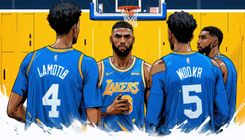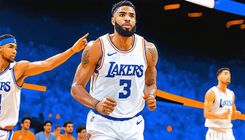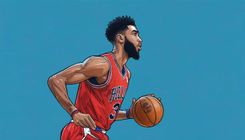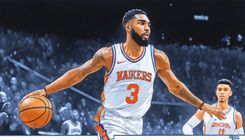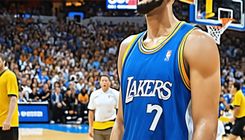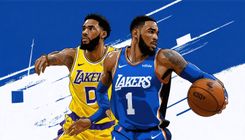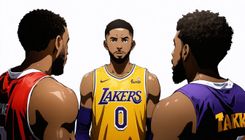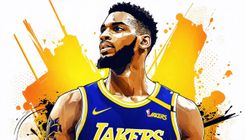Evaluating the Impact of Key NBA Transactions from the 2024 Offseason
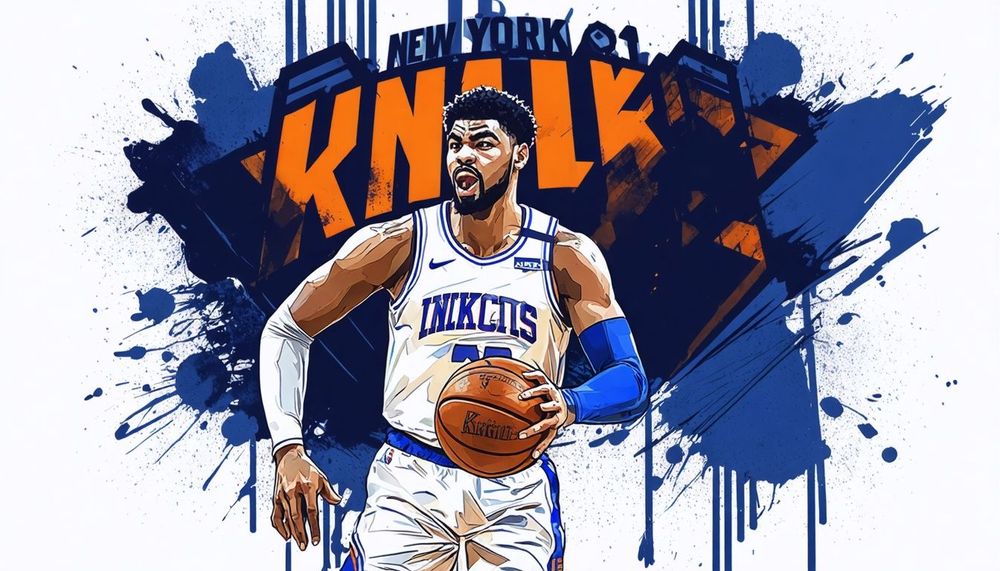
The process of evaluating NBA transactions often leads to hasty judgments, as evidenced by the numerous grades and winner-loser analyses applied to the offseason moves. Older deals tend to be easier to assess, which is why this evaluation revisits the significant trades and signings from the 2024 offseason. With the benefit of hindsight, an analysis of the most notable moves reveals how these decisions have fared over the past year.
One of the marquee trades involved the New York Knicks acquiring Karl-Anthony Towns and James Nnaji from the Minnesota Timberwolves in exchange for Julius Randle, Donte DiVincenzo, Keita Bates-Diop, and a first-round pick in 2025 (via Detroit). The Knicks saw a net rating of plus-5.2 and an overall offensive rating of 119.5 during the past season, showing improved synergy when Towns played alongside Jalen Brunson. However, that cohesion seemed to wane during the playoffs, where the Knicks struggled defensively, and the duo of Towns and Brunson proved less effective together than individually. Towns' hefty contract, which escalates to $61 million in 2027-28, may now pose challenges for the Knicks in future transactions.
The Brooklyn Nets also made significant decisions, notably trading away Mikal Bridges, Keita Bates-Diop, and a 2026 second-round pick to the New York Knicks for Bojan Bogdanović, Mamadi Diakite, Shake Milton, and an extensive array of first-round picks extending into future years. This investment reflected the Knicks' belief in Bridges as a critical component for their lineup, despite the hefty price they paid. While Bridges delivered a respectable 17.6 points per game with a 35.4% shooting rate from beyond the arc during his time in New York, the deal has raised questions about long-term value and potential holdouts for contract extensions. Conversely, the Nets have yet to turn their acquired draft assets into impactful players, but their future could still reflect the wisdom of this trade.
Consider the transaction facilitating the New Orleans Pelicans' acquisition of Dejounte Murray from the Atlanta Hawks, where the Hawks sent away a substantial package including Dyson Daniels and two first-round picks. The trade followed an unsatisfactory performance from Murray in Atlanta, whose individual statistics did not translate into team success. Murray's subsequent Achilles injury truncated his time with the Pelicans, leaving questions about whether the acquired talent warranted the high price paid, especially when considering Daniels' immediate impact in Atlanta, culminating in a remarkable season and individual accolades.
The Philadelphia 76ers signed Paul George to a substantial four-year, $212 million contract during the offseason, an action that was met with high expectations given the 76ers' win-now mindset due to the presence of Joel Embiid. However, George's ongoing injury problems limited him to just 41 games at a subpar scoring rate, raising concerns about the long-term viability of such an investment in a player with a history of health issues. Notably, Embiid also faced health setbacks later in the season, possibly complicating matters further for Philadelphia's ambitions.
In contrast, the Knicks demonstrated success with the early contract extension of Jalen Brunson, who had just completed a remarkable season with career-high averages and playoff performances. By signing a four-year, $156.5 million extension, Brunson not only solidified his future with the Knicks but also allowed for greater financial flexibility, potentially benefiting team-building efforts in the coming years.
Meanwhile, the Oklahoma City Thunder acquired Alex Caruso from the Chicago Bulls in a straightforward trade, which involved moving young talent Josh Giddey to Chicago. Caruso's impact on the Thunder's championship aspirations was immediate and significant, while Giddey has struggled to find a similar success in Chicago despite flashes of potential. As the offseason unfolded, the Thunder's gamble on Caruso seemed to pay off, reinforcing the strategic decisions that often define NBA team dynamics.
Lastly, the Utah Jazz renegotiated and extended Lauri Markkanen, committing five years and $238 million to the player amid trade speculation. While the potential for Markkanen's shooting excellence remains, questions about his fit with the rest of the Jazz's youthful roster and the sustainability of their win-now approach persisted throughout the season. As the team navigated through struggles, Markkanen's newly signed contract appeared increasingly burdensome, when weighed against the reality of his performance and the team's standing in the league.
